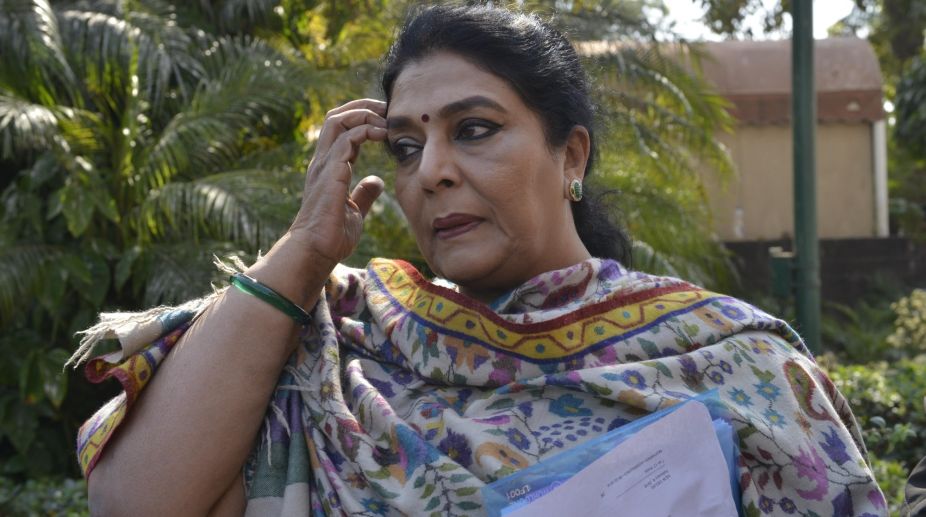India showcasing innovative technologies at World Energy Congress
India is showcasing its innovative technologies and power generation practices at the 26th World Energy Congress, being held in the Netherlands from April 22 to 25.

New Delhi: Congress MP Renuka Chowdhury arrives at Parliament on Feb 7, 2018. (Photo: IANS)
Congress MP Renuka Chowdhury on Friday filed a privilege motion in the Rajya Sabha against Union Minister Kiren Rijiju for sharing a video of hysterical cackling by mythological character ‘Surpanakha’ linking it to Prime Minister Narendra Modi’s comment on her.
The development comes a day after the Congress parliamentarian had taken strong objection to the video shared by the Union Minister of State for Home on Twitter and threatened to move privilege motion against Rijiju as well as Modi.
The Congress MP had accused both Modi and Rijiju of denigrating the status of women.
Advertisement
While replying to a debate on the motion of thanks to the President’s address in the Rajya Sabha, Modi had claimed the concept of Aadhaar was mooted in 1998 by the then home minister L K Advani, who spoke about a universally used national identity card.
As Modi sought to shear the previous Congress government of the credit for Aadhaar, Chowdhury burst into a guffaw, drawing disapproval of Chairman Naidu.
“If you have some problem, go to a doctor, please,” an irritated Naidu told Chowdhury.
Smiling broadly, Modi requested Naidu not to restrain the Congress MP.
“It is for the first time after the Ramayana serial that we are having the good fortune of hearing such laughter today,” Modi said without elaborating, but apparently hinting at a negative character in the serial.
Taking the dig at Chowdhary, Rijiju shared a Facebook post late on Wednesday after Modi compared Chowdhary’s laughter with the one in the epic television serial “Ramayana” in the 1980s.
Surpanakha was Lankan King Ravana’s sister. It was to avenge her insult that Ravana had kidnapped Sita triggering his own fatal destiny at the end of a war between the two sides in the epic “Ramayana”.
Advertisement